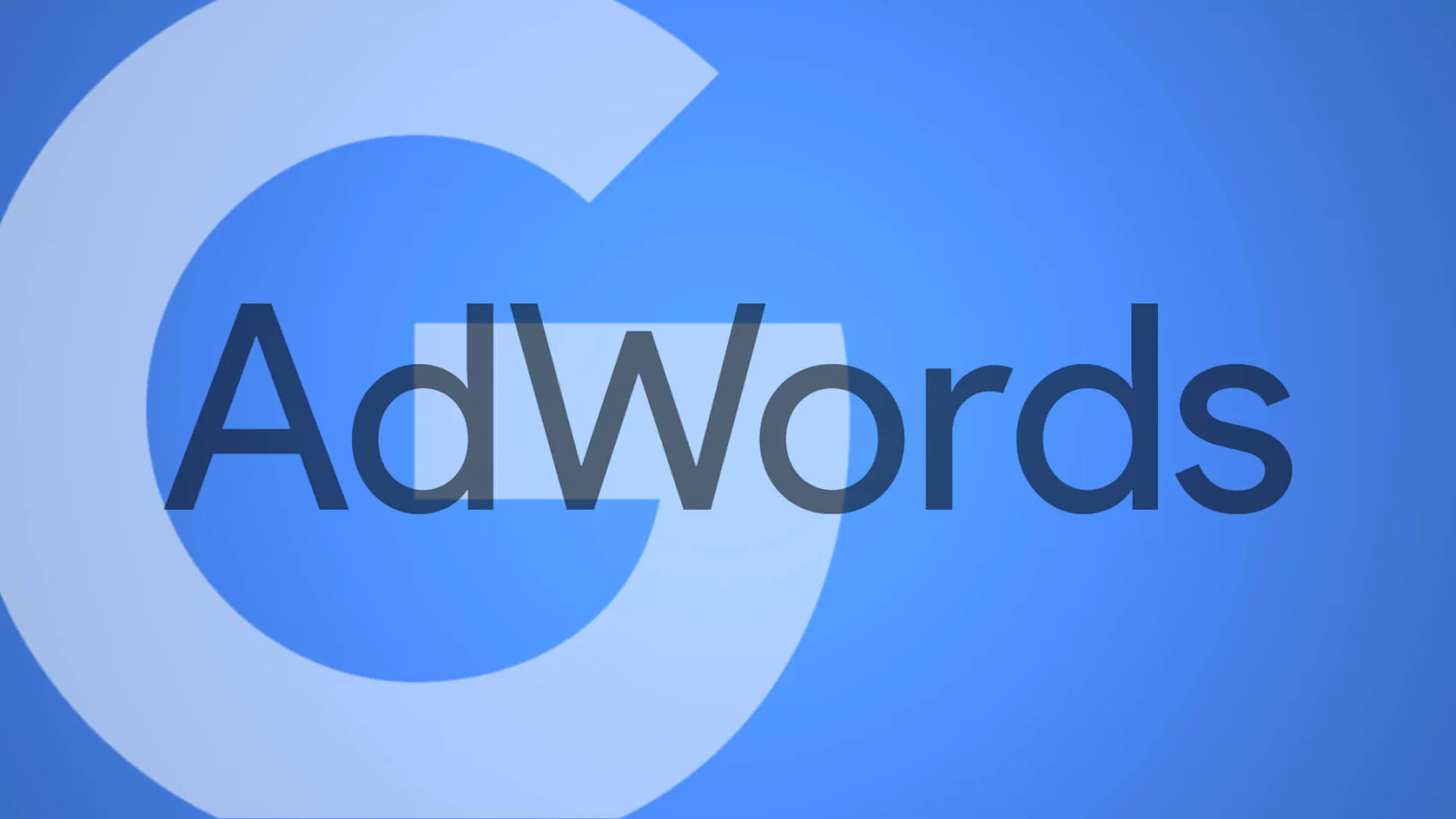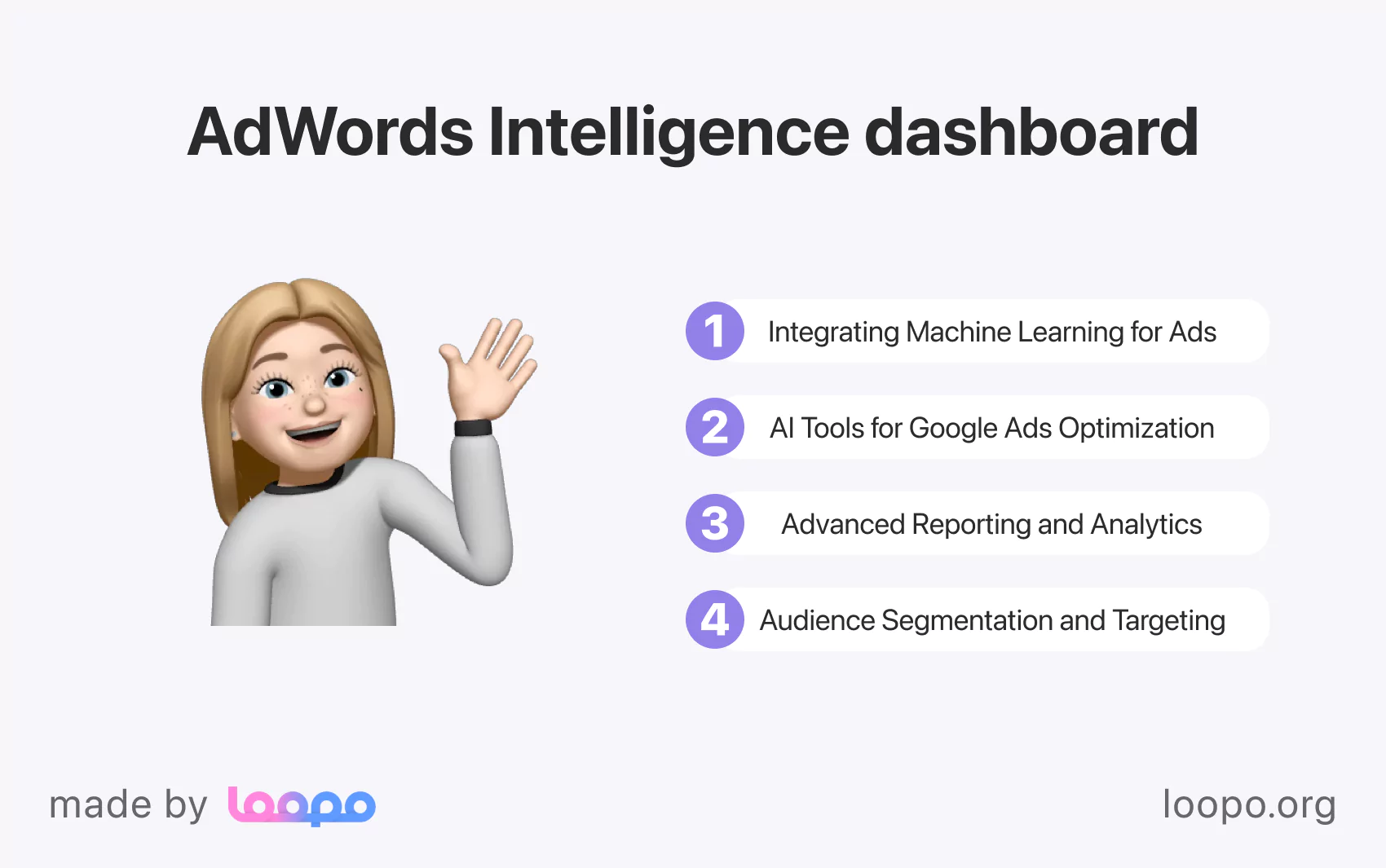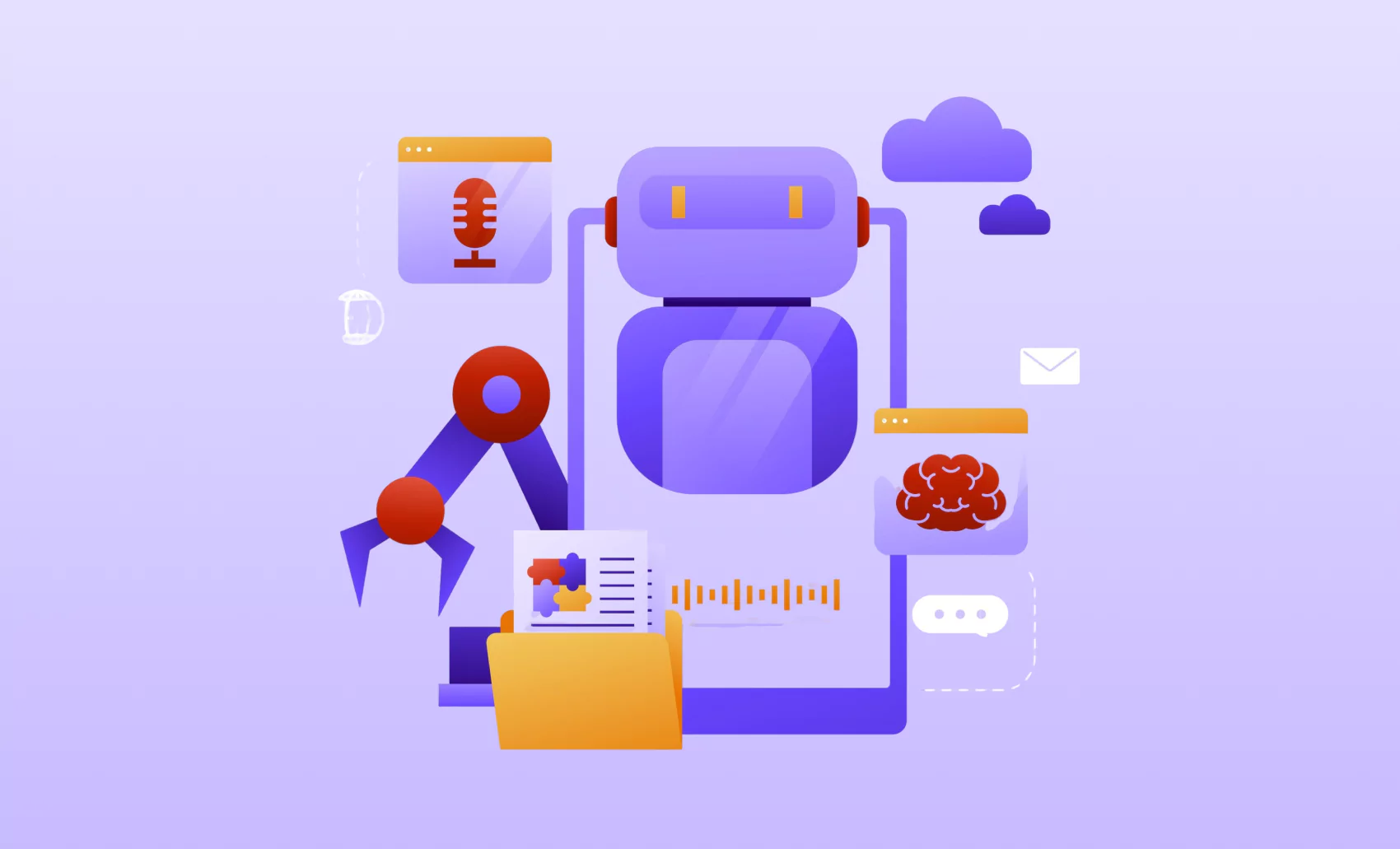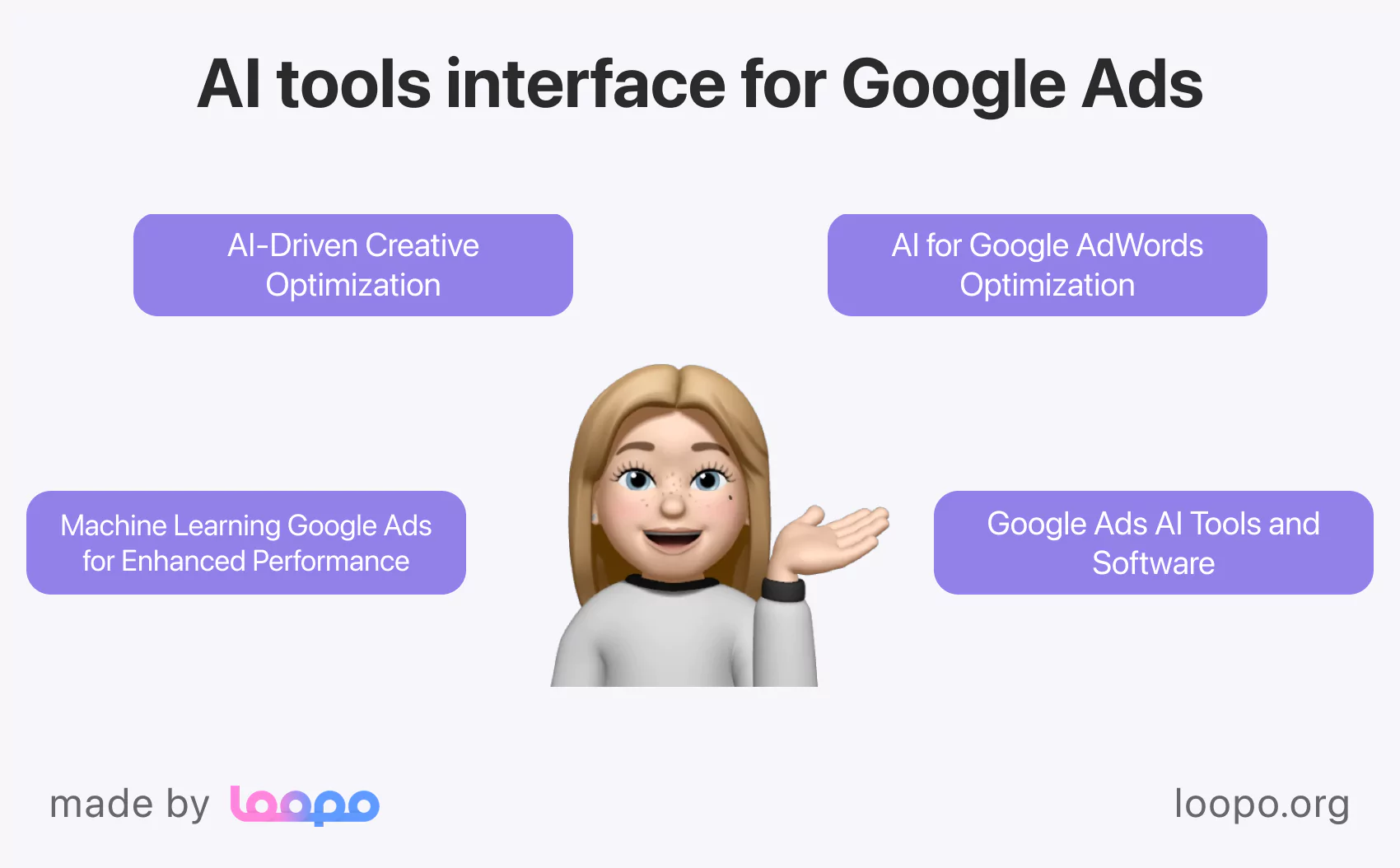AdWords Intelligence: How to Boost Your PPC Strategy

In the ever-evolving landscape of digital marketing, Pay-Per-Click (PPC) advertising remains a cornerstone for businesses aiming to drive targeted traffic and achieve measurable results. At the heart of successful PPC campaigns lies AdWords Intelligence—a powerful toolset that empowers marketers to optimize their strategies effectively. Whether you're a seasoned marketer or just venturing into PPC advertising, understanding and leveraging AdWords Intelligence can significantly enhance your campaign performance.
In this comprehensive guide, we'll delve deep into what AdWords Intelligence entails, explore its key features, and provide actionable insights on how to integrate it into your PPC strategy to achieve unparalleled success.

Understanding AdWords Intelligence
What is AdWords Intelligence?
AdWords Intelligence refers to the suite of tools and features provided by Google Ads that enable marketers to gain in-depth insights into their PPC campaigns. This intelligence encompasses data-driven insights, competitive analysis, and optimization techniques that help advertisers make informed decisions.
By analyzing metrics such as keyword performance, ad placement, and audience behavior, AdWords Intelligence allows businesses to fine-tune their campaigns for maximum efficiency and return on investment (ROI).
The Evolution of AdWords to Google Ads
Originally launched as Google AdWords in 2000, the platform has undergone significant transformations to adapt to the changing digital advertising landscape. In 2018, Google rebranded AdWords to Google Ads, reflecting a broader range of advertising options beyond search ads, including display, video, and shopping ads.
This evolution has integrated more sophisticated intelligence tools, such as machine learning algorithms and AI-powered optimization, enhancing the capabilities of advertisers to manage and optimize their campaigns more effectively.
Importance of AdWords Optimization in PPC
AdWords optimization is the process of refining and improving your Google Ads campaigns to achieve better performance. This involves selecting the right keywords, creating compelling ad copy, optimizing landing pages, and adjusting bids to maximize ROI.
Effective AdWords optimization ensures that your ads reach the right audience at the right time, reducing wasted spend and increasing conversions. With the competitive nature of PPC advertising, continuous optimization using AdWords Intelligence is crucial for staying ahead in the market.
The Role of Data in AdWords Intelligence
Data is the lifeblood of AdWords Intelligence. By harnessing vast amounts of data generated from user interactions, campaign performance, and market trends, marketers can uncover actionable insights that drive strategic decisions.
This data-driven approach ensures that every aspect of your PPC campaign—from keyword selection to ad placement—is backed by empirical evidence, minimizing guesswork and enhancing the overall effectiveness of your marketing efforts.
Key Features of AdWords Intelligence
Google Ads Intelligence and Its Capabilities
Google Ads Intelligence offers a comprehensive set of tools designed to enhance your advertising efforts. Key capabilities include:
Keyword Research and Analysis: Identify high-performing keywords and uncover new opportunities to target.
Competitive Insights: Analyze competitors' strategies to identify strengths and weaknesses.
Performance Tracking: Monitor campaign metrics in real-time to make data-driven adjustments.
Automated Recommendations: Receive AI-driven suggestions for bid adjustments, budget allocation, and ad improvements.
These features collectively enable marketers to create more effective campaigns, tailor their messaging, and allocate resources more efficiently.
Integrating Machine Learning for Ads
Machine learning plays a pivotal role in modern advertising by automating and enhancing various aspects of campaign management. In the context of AdWords Intelligence, machine learning algorithms analyze vast amounts of data to predict trends, optimize bids, and personalize ad experiences.
This integration allows for more precise targeting, reduced manual workload, and improved campaign outcomes.
AI Tools for Google Ads Optimization
Artificial Intelligence (AI) tools for Google Ads optimization harness the power of AI to streamline and enhance campaign management. These tools can automatically adjust bids based on performance data, generate optimized ad copy, and provide actionable insights for improving campaign effectiveness.
By leveraging AI for Google Ads, marketers can achieve greater precision and efficiency in their PPC strategies.
Advanced Reporting and Analytics
AdWords Intelligence also offers advanced reporting and analytics features that provide a granular view of campaign performance. These reports can be customized to focus on specific metrics, such as conversion rates, cost-per-acquisition (CPA), and customer lifetime value (CLV).
By utilizing these analytics tools, marketers can gain a deeper understanding of their campaign dynamics, identify bottlenecks, and implement strategies to overcome challenges.
Audience Segmentation and Targeting
Effective audience segmentation and targeting are crucial for the success of any PPC campaign. AdWords Intelligence allows marketers to segment their audience based on various criteria, such as demographics, interests, and behavior.
This segmentation enables the creation of highly targeted ads that resonate with specific audience groups, increasing the likelihood of engagement and conversions.

Enhancing PPC Strategy with AdWords Intelligence
Leveraging Google AI Ads for Better Targeting
Google AI Ads utilize advanced algorithms to deliver highly targeted advertisements based on user behavior, preferences, and intent. By leveraging Google AI Ads, marketers can ensure that their ads reach the most relevant audience segments, increasing the likelihood of conversions.
This targeted approach not only enhances ad performance but also optimizes budget allocation by focusing spend on high-potential prospects.
Using Ad Intelligence Tools for Competitive Analysis
Ad intelligence tools provide valuable insights into competitors' advertising strategies, allowing marketers to benchmark their performance and identify opportunities for improvement. By analyzing competitors' keywords, ad copy, and bidding strategies, businesses can refine their own PPC campaigns to gain a competitive edge.
This intelligence helps in identifying market gaps, optimizing ad placements, and crafting more compelling messages that resonate with the target audience.
Considering Ecommerce Ad Intelligence for Online Stores
For ecommerce businesses, AdWords Intelligence offers specialized tools to enhance product visibility and drive sales. Ecommerce ad intelligence focuses on optimizing product listings, managing inventory, and tailoring ad campaigns to seasonal trends and consumer behavior.
By utilizing these insights, online stores can improve their ad relevance, increase click-through rates (CTR), and boost overall sales performance.
Enhancing Local Campaigns with AdWords Intelligence
Local businesses can greatly benefit from AdWords Intelligence by optimizing their campaigns to target specific geographic areas. This localized approach ensures that ads are shown to users within a defined region, increasing the relevance and effectiveness of the ads.
By analyzing local search trends and consumer behavior, businesses can tailor their PPC strategies to meet the unique needs of their local audience, driving foot traffic and increasing local sales.
Personalizing User Experiences with AdWords Intelligence
Personalization is key to creating meaningful connections with your audience. AdWords Intelligence enables marketers to tailor their ads based on user preferences, behavior, and past interactions. Personalized ads are more likely to engage users, leading to higher conversion rates and improved ROI.
By leveraging data from AdWords Intelligence, businesses can create customized ad experiences that resonate with individual users, fostering loyalty and driving repeat business.

Advanced AdWords Optimization Techniques
Utilizing Search Ads Intelligence
Search ads intelligence provides in-depth analysis of search queries and user intent, enabling marketers to optimize their search ad campaigns effectively. By understanding the keywords and phrases that drive the most traffic and conversions, businesses can refine their ad targeting and improve ad relevance.
This focused approach leads to higher quality scores, lower cost-per-click (CPC), and increased overall campaign efficiency.
Exploring Bing Ads Intelligence Tools
While Google Ads dominates the PPC landscape, Bing Ads Intelligence tools offer additional avenues for reaching potential customers. Bing's platform provides unique insights and data that can complement your Google Ads strategies.
By exploring Bing Ads Intelligence tools, marketers can diversify their advertising efforts, tap into different audience segments, and enhance their overall PPC performance through multi-platform optimization.
Analyzing Marketplace Advertising Intelligence Strategies
Marketplace advertising intelligence involves leveraging data and insights from various online marketplaces to enhance PPC strategies. Platforms like Amazon, eBay, and Etsy provide valuable information on consumer behavior, sales trends, and competitive dynamics.
By integrating marketplace advertising intelligence into your PPC strategy, you can tailor your campaigns to align with marketplace-specific trends, optimize product listings, and drive higher sales conversions.
Utilizing Negative Keywords for Enhanced Performance
Incorporating negative keywords into your PPC campaigns is a crucial optimization technique that helps prevent your ads from appearing for irrelevant searches. By identifying and excluding these non-converting keywords, you can improve the overall relevance of your ads, reduce wasted spend, and increase your CTR.
AdWords Intelligence provides insights into which keywords to exclude, ensuring that your campaigns remain focused on high-potential search terms.
Optimizing Ad Scheduling with AdWords Intelligence
Ad scheduling allows you to control when your ads are displayed to your target audience. By analyzing performance data, AdWords Intelligence helps you identify the times and days when your ads perform best. This enables you to allocate your budget more effectively, ensuring that your ads are shown during peak performance periods.
Optimizing ad scheduling can lead to higher engagement rates and improved ROI.
Enhancing Mobile Ad Performance
With the increasing use of mobile devices for internet browsing and shopping, optimizing your PPC campaigns for mobile is essential. AdWords Intelligence provides insights into mobile user behavior, allowing you to tailor your ads for mobile devices. This includes optimizing ad formats, ensuring fast-loading landing pages, and creating mobile-friendly ad copy.
By enhancing mobile ad performance, you can reach a broader audience and drive more conversions from mobile users.
The Role of AI in Google Ads
AI for Google AdWords Optimization
Artificial Intelligence (AI) plays a transformative role in optimizing Google AdWords campaigns. AI-driven tools can analyze large datasets to identify patterns and trends, enabling more accurate bid adjustments and budget allocations.
Additionally, AI can automate routine tasks such as keyword research, ad copy generation, and performance monitoring, freeing up marketers to focus on strategic planning and creative initiatives.
Google Ads AI Tools and Software
Google Ads AI tools and software offer a range of functionalities designed to enhance campaign performance. These tools can provide predictive analytics, automate bid management, and deliver personalized ad experiences.
By utilizing Google Ads AI software, marketers can achieve greater precision in targeting, streamline campaign management processes, and drive higher ROI through data-driven decision-making.
Machine Learning Google Ads for Enhanced Performance
Machine learning algorithms in Google Ads continuously learn from campaign data to improve performance over time. By analyzing historical data and real-time metrics, machine learning Google Ads can optimize ad placements, adjust bids dynamically, and tailor ad content to match user preferences.
This adaptive approach ensures that campaigns remain effective in changing market conditions, leading to sustained growth and improved performance.
AI-Driven Creative Optimization
Creating compelling ad copy and visuals is essential for capturing user attention and driving conversions. AI-driven creative optimization tools analyze the performance of different ad variations to determine which elements resonate most with your audience.
By leveraging these insights, marketers can refine their creative strategies, ensuring that their ads are both visually appealing and highly effective in achieving their campaign goals.

Enhancing Ad Quality with AI
AI not only helps in optimizing bids and targeting but also plays a significant role in enhancing the overall quality of your ads. By analyzing user engagement and feedback, AI tools can suggest improvements to ad copy, visuals, and calls to action. This continuous refinement process ensures that your ads remain relevant, engaging, and effective in driving desired outcomes.
Predictive Analytics for Future Campaigns
Predictive analytics leverages historical data and machine learning to forecast future trends and performance. By utilizing predictive analytics within AdWords Intelligence, marketers can anticipate changes in market dynamics, user behavior, and competitive actions.
This foresight allows for proactive adjustments to campaign strategies, ensuring sustained performance and the ability to capitalize on emerging opportunities.
Implementing AdWords Intelligence in Your Marketing Strategy
Steps to Integrate Ad Intelligence Marketing
Integrating AdWords Intelligence into your marketing strategy involves several key steps:
Assess Current Campaigns: Evaluate the performance of existing PPC campaigns to identify areas for improvement.
Set Clear Objectives: Define specific goals, such as increasing CTR, reducing CPC, or boosting conversions.
Choose the Right Tools: Select appropriate ad intelligence tools that align with your objectives and budget.
Data Integration: Incorporate data from various sources, including Google Ads, Bing Ads, and marketplace platforms, to gain comprehensive insights.
Analyze and Optimize: Use the intelligence gathered to refine keywords, adjust bids, and enhance ad copy for better performance.
Monitor and Adjust: Continuously track campaign metrics and make necessary adjustments to maintain optimal performance.
Train Your Team: Ensure that your marketing team is well-versed in using AdWords Intelligence tools and interpreting data insights.
Iterate and Improve: Regularly review and iterate your strategies based on performance data and evolving market trends.
Best Practices for Using AdWords Intelligence
To maximize the benefits of AdWords Intelligence, consider the following best practices:
Continuous Monitoring: Regularly review campaign performance to identify trends and make timely adjustments.
Leverage Automation: Utilize AI and machine learning tools to automate routine tasks and focus on strategic initiatives.
Focus on Quality: Prioritize high-quality ad content and landing pages to improve user experience and increase conversions.
Stay Updated: Keep abreast of the latest features and updates in Google Ads to leverage new capabilities as they become available.
Test and Iterate: Conduct A/B testing on various campaign elements to determine what works best and implement successful strategies.
Optimize for Mobile: Ensure that your ads and landing pages are optimized for mobile devices to capture the growing mobile audience.
Utilize Audience Insights: Use detailed audience insights to create highly targeted and personalized ad campaigns.
Budget Allocation: Allocate your budget strategically based on performance data, focusing more resources on high-performing campaigns.
Measuring the Success of Your PPC Campaigns
Measuring the success of PPC campaigns is crucial to understanding the effectiveness of your AdWords Intelligence strategies. Key performance indicators (KPIs) to monitor include:
Click-Through Rate (CTR): Measures the percentage of users who click on your ads after seeing them.
Conversion Rate: Indicates the percentage of users who complete a desired action, such as making a purchase or signing up for a newsletter.
Cost-Per-Click (CPC): Reflects the average cost you pay for each click on your ads.
Return on Ad Spend (ROAS): Calculates the revenue generated for every dollar spent on advertising.
Quality Score: Assesses the relevance and quality of your ads, keywords, and landing pages.
Impression Share: Indicates the percentage of total impressions your ads receive compared to the total available impressions.
Cost-Per-Acquisition (CPA): Measures the average cost to acquire a new customer through your PPC campaigns.
Customer Lifetime Value (CLV): Estimates the total revenue a business can expect from a single customer account throughout their relationship.
By tracking these KPIs, you can gauge the performance of your campaigns, identify areas for improvement, and make data-driven decisions to enhance overall effectiveness.
Leveraging Data Visualization for Insights
Data visualization tools within AdWords Intelligence can transform complex data sets into intuitive and actionable visual formats. By utilizing charts, graphs, and dashboards, marketers can quickly identify trends, patterns, and anomalies in their campaign data. This visual approach facilitates easier interpretation of data insights, enabling more informed decision-making and strategic planning.
Integrating AdWords Intelligence with Other Marketing Channels
For a holistic marketing strategy, it's essential to integrate AdWords Intelligence with other marketing channels. This integration allows for a unified view of your marketing efforts, enabling better coordination and synergy across different platforms.
For instance, aligning your PPC campaigns with your social media, email marketing, and content marketing strategies can amplify your overall marketing impact and drive more consistent results.
Future Trends in AdWords Intelligence
The Growing Importance of AI in Advertising
As the digital marketing landscape continues to evolve, the role of AI in advertising is becoming increasingly significant. AI technologies enable more sophisticated targeting, personalization, and optimization of ad campaigns.
The ability to analyze vast amounts of data in real-time allows marketers to respond swiftly to market changes and consumer behavior, ensuring that their campaigns remain relevant and effective.
Innovations in Google Ads Machine Learning
Google Ads machine learning is constantly advancing, introducing new features and capabilities that enhance campaign performance. Innovations include improved predictive analytics, enhanced automation features, and more precise targeting options.
These advancements allow marketers to achieve greater accuracy in their campaigns, optimize budget allocation, and drive higher ROI through continuous learning and adaptation.
The Future of AI Google Ads and Optimization
The future of AI in Google Ads is poised to bring even more transformative changes. With ongoing developments in natural language processing, computer vision, and predictive modeling, AI Google Ads will offer deeper insights, more intuitive interfaces, and greater automation capabilities.
These advancements will empower marketers to create highly personalized and effective ad campaigns, streamline campaign management processes, and achieve unprecedented levels of performance and efficiency.
Voice Search and Its Impact on AdWords Intelligence
With the rise of voice-activated devices and virtual assistants, voice search is becoming an integral part of user behavior. AdWords Intelligence is adapting to this trend by providing insights and optimization techniques tailored for voice search queries.
Marketers will need to adjust their keyword strategies and ad copy to align with conversational search patterns, ensuring their ads remain visible and relevant in the voice search landscape.
Enhanced Privacy and Data Security Measures
As data privacy concerns continue to grow, AdWords Intelligence is evolving to incorporate enhanced privacy and data security measures. Google is implementing stricter data protection protocols and providing marketers with more control over their data usage. These measures ensure that user privacy is respected while still enabling effective ad targeting and campaign optimization.
Conclusion
AdWords Intelligence is an indispensable asset for modern marketers seeking to enhance their PPC strategies. By leveraging the robust suite of tools and features offered by Google Ads Intelligence, businesses can gain valuable insights, optimize their campaigns, and achieve significant improvements in performance and ROI.
From integrating machine learning and AI tools to conducting competitive analysis and implementing advanced optimization techniques, AdWords Intelligence provides the foundation for successful and sustainable PPC advertising. As the digital landscape continues to evolve, staying ahead with AdWords Intelligence will ensure that your PPC strategies remain effective, competitive, and aligned with your business goals.
Visit our blog for expert insights and contact us to find the ideal solution for your business!




